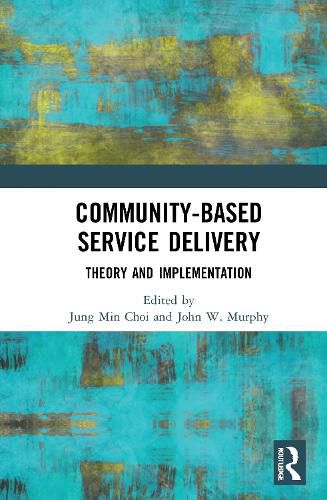Readings Newsletter
Become a Readings Member to make your shopping experience even easier.
Sign in or sign up for free!
You’re not far away from qualifying for FREE standard shipping within Australia
You’ve qualified for FREE standard shipping within Australia
The cart is loading…






This book takes up the challenge of the failure of most initiatives in community-based service delivery to address the significant philosophical shift that is necessary to create, implement, and evaluate appropriately these sorts of projects. Challenging the tendency to focus entirely on practicalities, the authors emphasize the centrality of philosophy to any successful community-based undertaking. While fully acknowledging the importance of local knowledge and the guidance of projects by local people, this volume shows that these principles are often at odds with the ‘Cartesian’ mindset that underpins much project planning, with its emphasis on objectivity in science and knowledge. Since all knowledge is mediated by human activity and embedded in language and other modes of expression, this dualist approach must be reconsidered. A thorough rethinking of traditional service delivery, which takes into account issues of data, methodology, and bias together with questions of generalizability, community, power, and communication, this book will appeal to scholars of sociology, social policy, and social work with interests in community-based service delivery.
$9.00 standard shipping within Australia
FREE standard shipping within Australia for orders over $100.00
Express & International shipping calculated at checkout
This book takes up the challenge of the failure of most initiatives in community-based service delivery to address the significant philosophical shift that is necessary to create, implement, and evaluate appropriately these sorts of projects. Challenging the tendency to focus entirely on practicalities, the authors emphasize the centrality of philosophy to any successful community-based undertaking. While fully acknowledging the importance of local knowledge and the guidance of projects by local people, this volume shows that these principles are often at odds with the ‘Cartesian’ mindset that underpins much project planning, with its emphasis on objectivity in science and knowledge. Since all knowledge is mediated by human activity and embedded in language and other modes of expression, this dualist approach must be reconsidered. A thorough rethinking of traditional service delivery, which takes into account issues of data, methodology, and bias together with questions of generalizability, community, power, and communication, this book will appeal to scholars of sociology, social policy, and social work with interests in community-based service delivery.